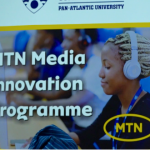The Alliance for Accelerating Excellence in Science in Africa (AESA), created through a partnership between the African Academy of Sciences (AAS), African Union Development Agency (AUDA-NEPAD) in partnership with the Swedish International Development Cooperation Agency (Sida) welcome proposals to address a new Grand Challenge: Promoting and facilitating innovative solutions to achieve Food Security and Nutrition in Africa.
Application Deadline: 4th December, 2020 at 23:59hrs East African Time
About the Award: GC Africa will fund African Investigators through this GC Africa Food Security and Nutrition (FSN) call. We are seeking innovative global development and health solutions related to achieving food security and nutrition and are now accepting proposals for applications. Subject to the eligibility requirements in the GC Africa Rules & Guidelines, investigators are invited to apply, with the support of the primary organisation where they are affiliated, and where the major programme of work will be undertaken. Grants will go to investigators in African countries, but we encourage partnerships with investigators in other countries, especially where the opportunity exists to build new or strengthen existing collaborations.
Applicants can be at any level of experience and working in any discipline, from any organization, including colleges and universities, government laboratories, research institutions, for profit and non-profit organizations.
Type: Grants
Eligibility: Projects that will apply and enable adoption of new technologies, innovations and policies in at least one of the following key areas to:
- Ensuring climate resilient food systems
- Promote technologies, innovations and agribusinesses to achieve food security and nutrition targets
- Address cross-cutting issues that promote food security and nutrition
- Achieve the nutrition and health targets of the African Union
- Tackle sustainable commercialisation and production of indigenous foods
Projects should aim to develop innovations or interventions that address at least one aspect of food security and nutrition (access, availability, utilisation and sustainability) or provide novel evidence-based ways to strengthen and promote effectiveness of these aspects for existing solutions. Such solutions may include but are not limited to models, strategies, tools, services, technologies and processes. We seek ideal solutions that apply a deeper
understanding of the end user and consider the contextual constraints of implementation.
Projects must be relevant to strengthening food security and nutrition systems and may target key stakeholders such as individuals, families, communities, farmers, service providers and components of food infrastructure, networks, and systems.
Examples of what we will consider funding for- innovations that:
- Highlight and enhance interventions that increase resilience of agri-food systems to climate related shocks (drought, pests, floods or pandemics such as COVID-19 etc).
- Provide accessible and acceptable options for scaling up climate smart agricultural practices e.g. reduce emissions from agriculture, prevent loss of biodiversity, prevent soil degradation and soil nutrient depletion etc.
- Investigate agricultural practices that can reverse the negative impacts of intensive agriculture while at the same time combat acute and chronic food insecurity.
- Develop measures for access of nutrient dense and affordable foods by low income communities to tackle multiple burdens of malnutrition (undernutrition, micronutrient deficiencies, overweight and obesity) while mitigating against negative impacts of dietary transition.
- Target activities that mitigate community-specific constraints to improving the nutrition status of specific groups – infants, children, adolescents, pregnant and lactating women, elderly, ill individuals or convalescents etc.
- Research the potential for indigenous food systems in preventing the surge of non-communicable diseases, micronutrient deficiencies, wasting, undernutrition, obesity, and overweight in Africa.
- Prioritize policies that promote access and affordability of nutritious food by vulnerable groups.
- Promote use of agriculture, food and nutrition as a factor for socioeconomic development; equity and inclusion; stability, and for ensuring peace and security.
- Develop structures that promote advances in agrifood systems, homegrown solutions to food insecurity, training facilities for new generations of actors in the agrifood systems e.g. young farmers, traders, innovators, researchers, etc.
- Identify strategies to improve productivity in indigenous agrifood systems including indigenous crops and livestock.
- Identify support required for the development of the seed production sector for nutrient dense foods like fruits and vegetables as well as underutilized and indigenous foods including livestock production.
- Research market value chains for indigenous foods, their safety and efficacy testing including marketing and consumer perceptions.
- Build diversified and sustainable food systems that promote dietary patterns high in nutrient density (e.g. fruits, vegetables, legumes, whole grains, insects etc.) and demote patterns of highly processed, energy-dense, low-nutrient food.
- Promote technologies/innovations that minimize pre-harvest and post-harvest losses and/or general food waste through consumption patterns e.g. food storage, recycling technologies, dietary patterns etc.
- Promote innovations that decrease contamination of food e.g. aflatoxins and other sources of foodborne diseases.
- Promote sustainable animal husbandry practices that can reduce infections and dependence on antibiotics.
Selection Criteria: Criteria for success will include solutions that:
- Could contribute to a portfolio of funded projects that addresses a country’s key priorities or regional challenges.
- Clearly incorporate measures of success reasonable for the timespan of the grant (24 months).
- Incorporate multiple areas of innovation or broaden toolkits of interventions, especially sets of interventions targeting combinations of outcomes spanning the spectrum of objectives outlined for this call.
- Have a project plan whereby after two years- the end of phase I grant period- grantees will be in a position to explore how the results from their project could inform the design of a more extensive collaborative package of work that can be submitted for phase II funding.
- Address well identified barriers and constraints which will be solved by implementing locally relevant programs.
- Explain how proposed innovations and interventions will eventually be tested in communities so that they have the highest likelihood of being relevant for implementation more broadly in the country’s systems.
- Provide data or evidence for effective food security and nutrition solutions.
- Address inequities in food security and nutrition.
- May potentially build on existing partnerships, which will be essential to achieve results at scale.
Eligible Countries: African countries
Number of Awards: Not specified
Value of Award: The Food Security and Nutrition (FSN) awards will fund projects up to USD $100,000 for a maximum of 2 years. These awards are seed grants (phase I) meant to provide an opportunity to test particularly bold, proof of concept ideas, including applying approaches from outside the fields indicated for this call. New approaches could be piloted as additions to ongoing projects. Winners of the GC Africa-FSN grants will have an opportunity to apply for follow-on, transition to scale funding in future but please note that support for phase II funding is NOT part of this call.
Future phase II calls – Funded at up to USD 1 million per three-year project, phase II awards require substantial preliminary data (to be collected during phase I) and are meant to provide an opportunity to develop, refine, and rigorously test combinations of activities, including sets of interventions for which some or all have previously shown promise in controlled or limited settings. We expect that successful projects funded under this call, and which demonstrate promising results, will have the opportunity to apply for phase II funding either to GC Africa or directly to our partners.
In all cases, individual project budgets should be representative of the scope and magnitude of the proposed studies and carefully designed to get the best possible value out of the award. The applicant recipient institution, organization or company will also be required to provide assurances on their capacity to manage the grant through detailed letters of support from the appropriate research or innovation support office. The AAS reserves the right to undertake due diligence site visits to organizations hosting successful candidates before making final awards.
How to Apply: Applications MUST be submitted through the AAS Ishango Online Application Portal.
- It is important to go through all application requirements in the Award Webpage (see Link below) before applying.
- GOODLUCK
Visit Award Webpage for Details









